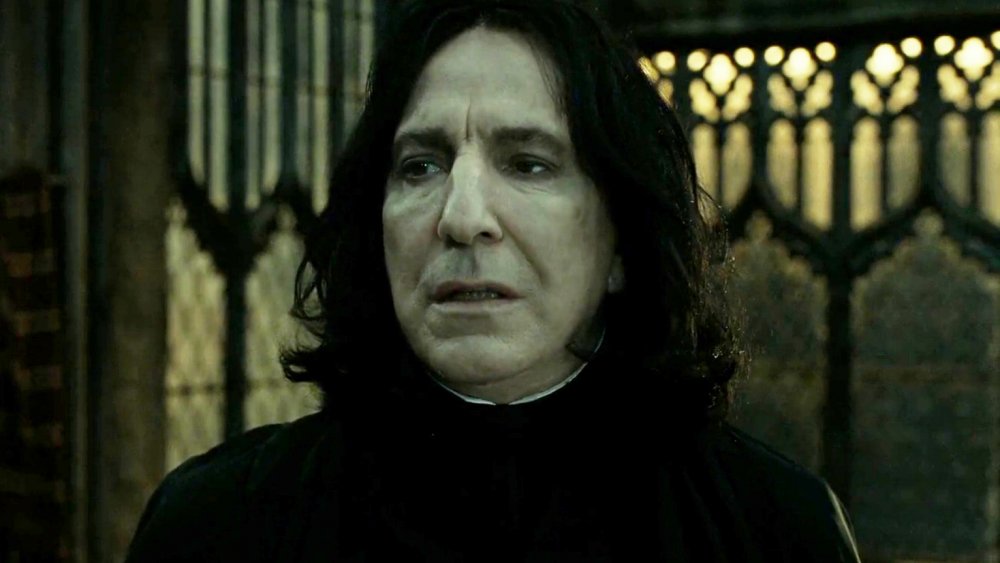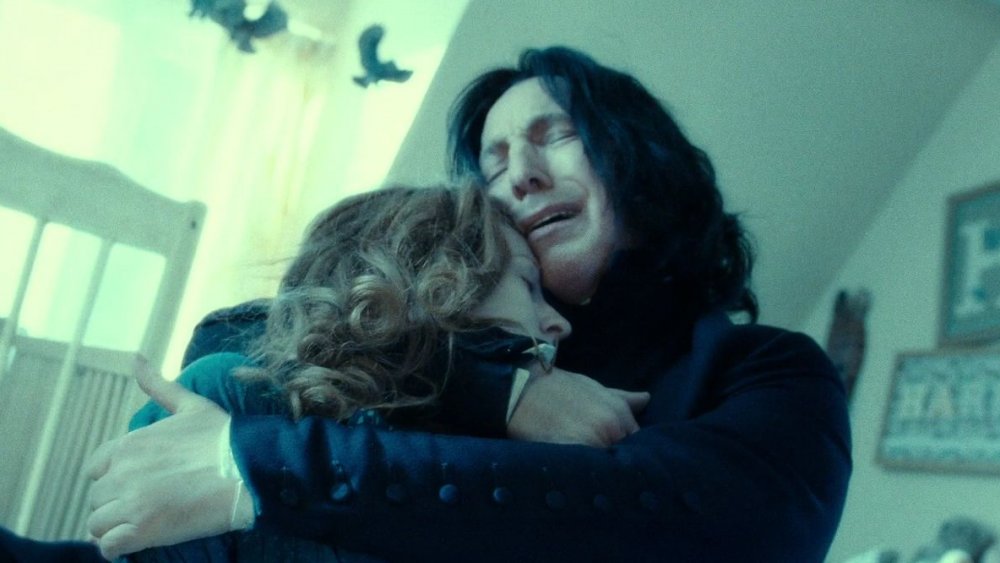The Harry Potter Snape Quote That Means More Than You Think
We may receive a commission on purchases made from links.
Throughout the Harry Potter franchise, Severus Snape serves as one of the series' most complex characters. The Potions Master and Head of Slytherin House was almost always at odds with Harry Potter, at least on the surface. In truth, however, Snape was protecting the young wizard and fooling Voldemort into thinking he was on the Dark Lord's side. And just like Snape's motives, his last words to Harry might have much deeper implications than many realize.
In Harry Potter and the Deathly Hallows – Part 2, Voldemort discovers that, in order to attain power over the Elder Wand, he must kill Snape. With Harry, Ron, and Hermoine hiding nearby, Voldemort orders Nagini to kill Snape. In Snape's final scene with Harry before his death, Snape tells Harry, "You have your mother's eyes."
Taken at face value, the quote refers to Harry's green eyes, which match his mother Lily's. But fans learn, after Harry takes Snape's tears to the Pensieve, that Snape loathed Harry's bully of a father James but was in love with Lily since childhood. She treated him like a human when nobody else would. Lily and Snape were friends until Snape called her a "Mudblood," a derogatory term for a Muggle-born witch or wizard.
Severus Snape loved Lily Potter despite their different upbringings
According to Dr. Christopher Bell from the University of Colorado, identity development plays a much larger role in the Harry Potter franchise than we perceive. At this year's annual Harry Potter conference, held virtually at Chestnut Hill College in Philadelphia, Pennsylvania, Bell said, "When people think about Harry Potter, they think about the characters in terms of the actors that were cast for the movies" (via MuggleNet).
He went on to say that, due to the film's casting choices, many perceive the characters to be white. But in the books, characters like Harry and Hermoine are given vague enough descriptions that readers could see them both with darker skin. Bell, who has written extensively on Harry Potter, added, "Whiteness as default is neither necessary nor particularly imaginative."
As MuggleNet notes, race is often addressed throughout Harry Potter when the subject of blood purity surfaces. It tends to be tied to socioeconomic status as well. The wealthy pure-blooded Malfoys show disdain for the poorer pure-blooded Weasleys, but nobody in either family would be called a "Mudblood," as Draco Malfoy calls Hermione.
When Snape, nearing his death, looks into Harry's green eyes, he doesn't see race or class. He doesn't see the child of a "Mudblood" mother — he sees the same eyes he saw when looking at Lily. Racial identity, class ranking, and circumstance of birth are transcended, and Snape sees the first person who treated him like human being.

